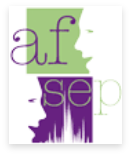Background
Conventional sampling and targeted quantitative methods dedicated to chemical analyses are available to support environmental, food and human monitoring, risk assessment, and risk management decisions. However, these approaches sometimes still suffer from a lack of sensitivity to characterize lowest exposed populations, a lack of feasibility for large population studies, and importantly only capture a limited number of a priori known and selected markers of exposure. Capturing the complex real human chemical exposome requires new conceptual frameworks and innovative methodological approaches, built on the latest generation of cutting-edge instrumentation that open the door to more rapid, high throughput, and holistic marker’s detection and identification.
Combining innovative sampling (dry bloodspot, silicone wristbands) and/or biological matrices (cord blood, placenta, meconium…) with suspect and non-targeted screening approaches based on high resolution mass spectrometry (HRMS) today appear as promising methodological alternatives to widen our knowledge of the human chemical exposome. As formulated by several agencies (e.g. EFSA), early stage human exposure appears in particular as a high concern not yet well addressed, both in terms of risk assessment and link to health impact at latest stages (DoHAD concept). The aim of this project is to develop and conduct a proof-of-concept permitting to assess the performances, and illustrate the usefulness, of those innovative methods, as complementary to conventional and targeted approaches, with a focus on human samples collected from mother-newborn/child individuals.
Objectives
In this context, a research project is open for a Ph.D. candidate. This project aims to develop innovative analytical strategies focusing on perinatal exposure profiling via multidimensional and high-resolution mass spectrometry coupled with different types of chromatographic separations (LC-Q-Exactive/LC-Q-TOF/GC-Q-Exactive).
The Ph.D. student’s research work will thus consist of sample preparation, data generation, data analysis, and treatment to gain access to the characterization of the chemical exposure of individuals (Exposomics). Moreover, an additional part will be dedicated to evaluating the new sampling methods and comparing them to more invasive conventional techniques.
This Ph.D. project is a part of a large European consortium on chemical exposure (PARC project “Partnership for Assessment of Risk of Chemicals”, EU Horizon EU Cofund, 2022-2029, https://www.eu-parc.eu/) – assembling more than 200 institutions from 28 countries. This consortium will offer the candidate a large networking and international experience.
Supervisors
Dr. Jean-Philippe ANTIGNAC
Dr. Tarek MOUFAWAD
Qualifications
We are looking for a highly motivated scientist with a master degree in characterization of human exposure to chemicals. In detail, the candidate is expected to possess:
Strong chemical background with a M.Sc. in Chemistry, Chemical Engineering, Analytical Chemistry or equivalent
Hands on experience with analytical method development and advanced data analysis within chromatography and mass spectrometry (multidimensional and/or high resolution MS) workflows
Experience or knowledge about one or more of the following areas will be an advantage:
o Chemical contaminants
o Exposomics
o Multivariate data analysis
Good laboratory skills
Good collaboration and communication skills (written and spoken English)
Structured and analytical working approach
Salary
The period of employment is 3 year, gross salary of 2044.12 €/month.
Application
Please submit your application before 30 July 2023.
Applications must be submitted to jean-philippe.antignac@oniris-nantes.fr and tarek.moufawad@oniris-nantes.fr as one pdf file containing all materials to be given consideration. The file must include:
A covering letter
A curriculum vitae
Supporting letters
